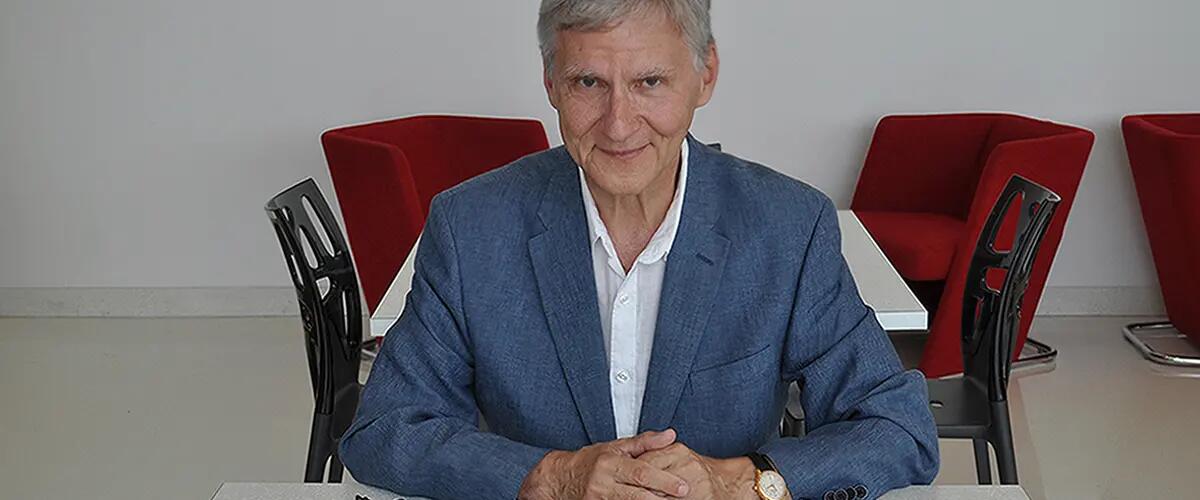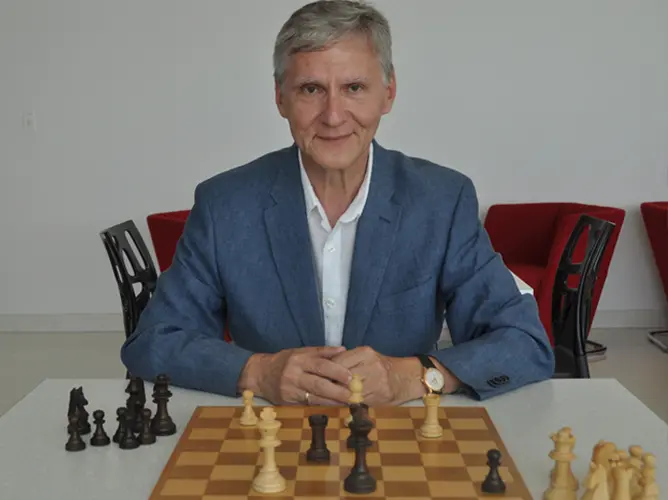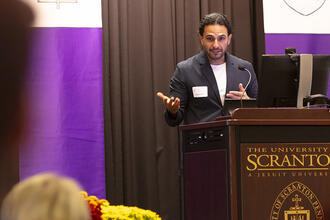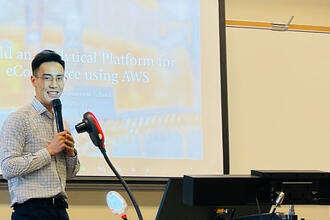
“This is like a crowning of a career in the area of optimization.” - Professor Andrzej Ruszczynski
Prize highlights professor's influence in field of risk optimization
Early on, Professor Andrzej Ruszczynski made a calculation, one that, surprisingly, did not involve math.
He decided he would pursue an unconventional and less popular path in applied mathematical research, focusing on an area that was more challenging to him: risk optimization.
“At that time, most research was done on deterministic models. I wasn’t really interested in that,” he said. “I wanted to work on problems in which the result of your action is not guaranteed like in an investment or a military operation.”
Ruszczynski, a professor of management science and information systems at Rutgers Business School, became one of the world’s leading researchers in risk optimization and risk adverse decision-making. In July, the Society for Industrial and Applied Mathematics and the Mathematical Optimization Society affirmed that by awarding Ruszczynski the George B. Dantzig Prize. The prize is awarded every three years to an individual or individuals for research that by its originality, breadth and depth is having a major impact on the field of mathematical optimization.
Ruszczynski is one of 21 researchers who have received the prize since it was established in 1979, and he is the first from Rutgers. He shares the 2018 prize with Alexander Shapiro of the Georgia Institute of Technology.
“This is like a crowning of a career in the area of optimization,” said Ruszczynski who teaches four classes including two to students in the Master of Quantitative Finance program. “I am extremely happy. This is confirmation for me that I chose the right way in research.”
Distinguished Professor Michael Katehakis, who chairs the Management Science and Information Systems (MSIS) department, said Ruszczynski’s prize is “well-deserved and a major achievement.”
"The recognition affirms the MSIS department’s commitment to academic excellence,” he said, “It also serves as a great example of our faculty’s rich expertise and influence.”
When he was growing up in Poland, Ruszczynski’s hobby was chess. Not just playing, but devising uncommon ways to win the game by “setting up situations that were difficult to solve.”
It was a foreshadowing of his passion for science, mathematics and problem-solving.
During his undergraduate studies in engineering, Ruszczynski was involved with a project to create a model to ensure that water reservoirs worked sufficiently to prevent flooding and to provide water in times of drought. “This problem set my thinking, I want to work on problems like this because they are very challenging.”
While finance motivated much of Ruszczynski’s research, the applications for stochastic decision-making seem never-ending today. They are being applied to big data, energy systems, and robotics. He predicts there will continue to be a lot of progress and many more applications.
Ruszczynski is currently expanding his research to develop models capable of improving the processing of large amounts of data. The issue is so compelling that faculty from Rutgers Business School and the School of Arts and Science's computer science department are planning to launch several new initiatives in dynamic data analysis.
“Humans are unable to process large amounts of dynamically changing data in the presence of high uncertainty,” he said. “We definitely need to devise methods to deal with it.” The possible applications range from fraud detection to cargo security.
The problems of controlling risky investments, operating robots in uncertain conditions and processing big data continue to inspire Ruszczynski in the same way he felt challenged, so many years ago, to develop a mathematical model capable of managing water levels in reservoirs.
“It is very satisfying,” he said, “to see how mathematical constructions that are the product of human imagination can find application in real life.”
-Susan Todd

Press: For all media inquiries see our Media Kit


